Research Facilities
Projects & Consultancy
Corporate Mentors
Computer Science Association

Welcome to the Computer Science Association (CSA) at Shri Shankaracharya Institute of Professional Management and Technology (SSIPMT), Raipur! 🎓 The CSA, an active and inclusive community under the Department of Computer Science and Engineering, is dedicated to fostering innovation, technical skills, and collaborative learning among students. Our mission is to equip future technology leaders with cutting-edge knowledge and inspire exploration across diverse fields in computer science and engineering. 💻✨
At CSA, we conduct a wide range of activities, including coding marathons 🖥️, hackathons 🚀, technical talks 🧠, and project showcases 🔍. These events are designed to help students gain practical experience and prepare for industry challenges. We also emphasize environmental and social responsibility through various initiatives.
Our members form a close-knit community of passionate learners, guided by experienced faculty who support us at every step. With a commitment to inclusivity and continuous learning, CSA welcomes students from all backgrounds and encourages them to bring their unique ideas to the table. Join us on this journey to innovate, collaborate, and lead in the dynamic world of technology! 🚀👩💻
For more information, upcoming events, and membership details, please contact us through our department or follow our updates here on the website! 📢
Vision
- To establish a vibrant and future-ready community of computer science learners committed to academic rigor, technical mastery, and responsible innovation in service of society and industry.
Mission
- To create a dynamic and inclusive platform that empowers students through hands-on technical exposure, collaborative learning, and industry-aligned skill development.
Objectives
- To foster technical competence, creativity, and innovation among students of the department.
- To organize structured academic and co-curricular activities such as coding contests, hackathons, workshops, and technical camps.
- To enhance students’ technical and professional skills through consistent participation in computing-based events and initiatives.
- To align student engagement with current industry trends and ethical practices in computing.
- To build a collaborative ecosystem that nurtures innovation, leadership, and research aptitude.
Office Bearers

HOD Message
Message will be updated soon
Faculty Profile

Dr. Anand Tamrakar
HOD
Qualification – Ph.D
Specialization – Database, Data Mining
Year of Experience – 19 Yrs
Date of Joining – 23-12-2010
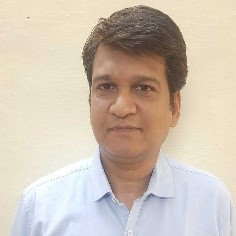
Dr. Rakesh Kumar Khare
Associate Professor
Qualification – Ph.D
Specialization – Artificial Intelligence
Year of Experience – 24 Yrs
Date of Joining – 28-08-2023
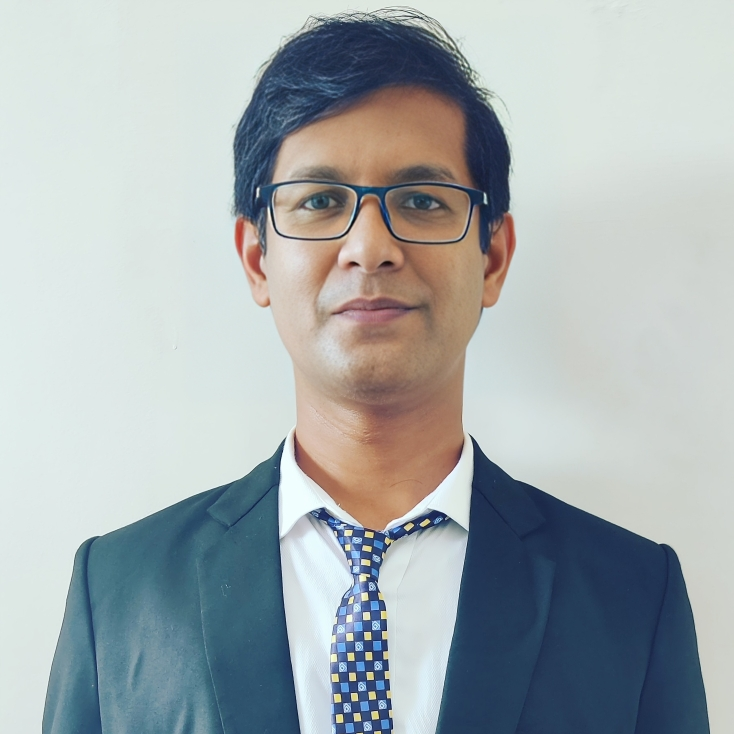
Dr. Yogesh Kumar Rathore
Assistant Professor
Qualification – Ph.D
Specialization – Machine Learning, Deep Learning
Year of Experience – 19.1 Yrs
Date of Joining – 23-03-2021
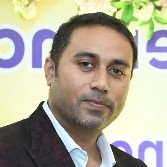
Dr. Suman Kumar Swarnkar
Assistant Professor
Qualification – Ph.D
Specialization – Artificial Intelligence
Year of Experience – 12 Yrs
Date of Joining – 11-10-2021
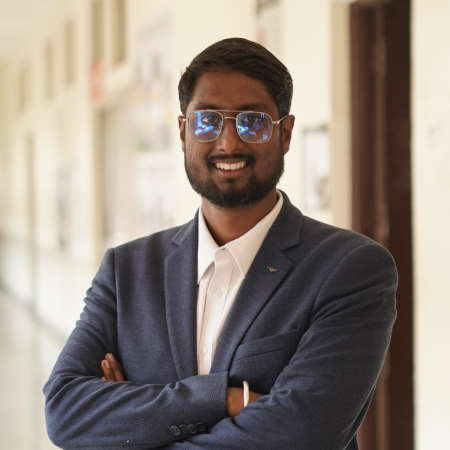
Dr. Apurv Verma
Assistant Professor
Qualification – Ph.D
Specialization – Machine Learning
Year of Experience – 08 Yrs
Date of Joining – 02-01-2024
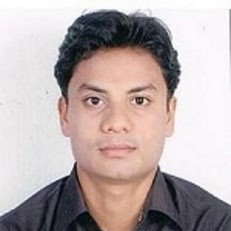
Mr. Devbrat Sahu
Assistant Professor
Qualification – Ph.D (Pursuing)
Specialization – Artificial Intelligence
Year of Experience – 10.6 Yrs
Date of Joining – 05-07-2021
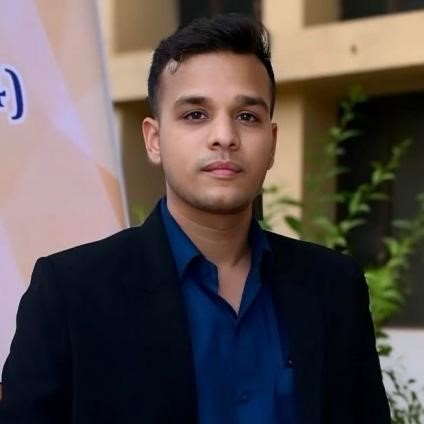
Mr. Saurabh Mishra
Assistant Professor
Qualification – Ph.D (Pursuing)
Specialization – Artificial Intelligence
Year of Experience – 02 Yrs
Date of Joining – 14-08-2024
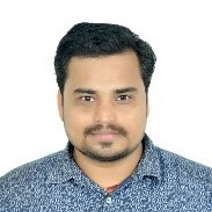
Mr. Deepak Rao Khadatkar
Assistant Professor
Qualification – Ph.D (Pursuing)
Specialization – AI, ML, DL
Year of Experience – 17 Yrs
Date of Joining – 19-07-2019

Mr. Vivek Kumar Soni
Assistant Professor
Qualification – Ph.D (Pursuing)
Specialization – Image Processing
Year of Experience – 9.5 Yrs
Date of Joining – 23-08-2023
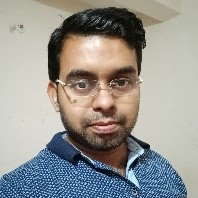
Mr. Vaibhav Chandrakar
Assistant Professor
Qualification – Ph.D (Pursuing)
Specialization – Machine Learning
Year of Experience – 12 Yrs
Date of Joining – 01-06-2023

Mr. Sunil Kumar Dewangan
Assistant Professor & Head
Qualification – Ph.D (Pursuing)
Specialization – Machine Learning, Soft Computing
Year of Experience – 16.5 Yrs
Date of Joining – 05-01-2012
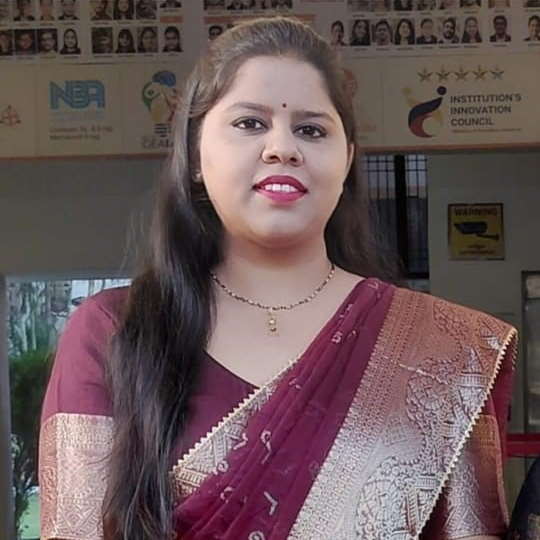
Ms. Priyata Mishra
Assistant Professor
Qualification – Ph.D (Pursuing)
Specialization – Image Processing
Year of Experience – 10 Yrs
Date of Joining – 23-08-2023
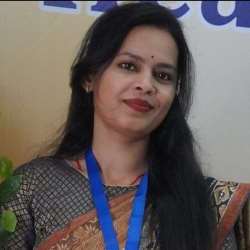
Ms. Prapti Pandey
Assistant Professor
Qualification – Ph.D (Pursuing)
Specialization – Image Processing
Year of Experience – 01 Yrs
Date of Joining – 05-08-2024

Ms. Preeti Tuli
Assistant Professor
Qualification – Ph.D (Pursuing)
Specialization – DBMS, ML, NLP
Year of Experience – 24.9 Yrs
Date of Joining – 05-07-2016
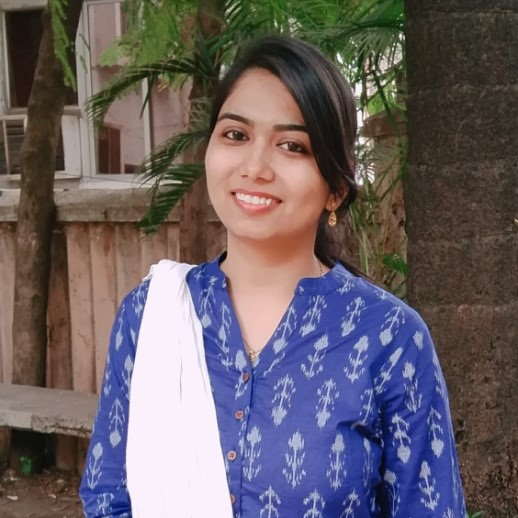
Ms. Shraddha Taunk
Assistant Professor
Qualification – Ph.D (Pursuing)
Specialization – Machine Learning
Year of Experience – 9.5 Yrs
Date of Joining – 01-04-2021
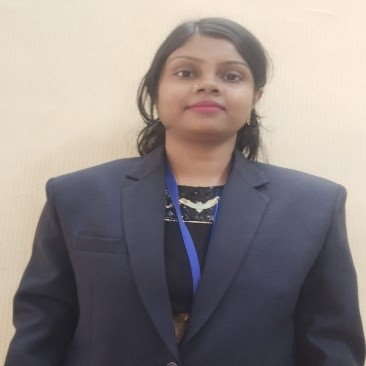
Ms. Poonam Gupta
Assistant Professor
Qualification – Ph.D (Pursuing)
Specialization – Machine Learning
Year of Experience – 9 Yrs
Date of Joining – 18-03-2024

Mr. Manoj Kumar Singh
Assistant Professor
Qualification – Ph.D (Pursuing)
Specialization – Computer Network
Year of Experience – 15 Yrs
Date of Joining – 11-02-2022
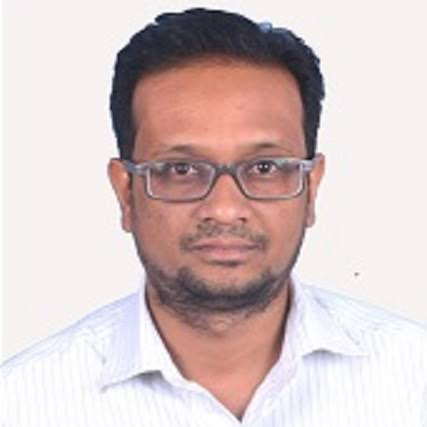
Mr. Narendra Kumar Dewangan
Assistant Professor
Qualification – Ph.D (Pursuing)
Specialization – Deep Learning
Year of Experience – 17 Yrs
Date of Joining – 02-01-2023
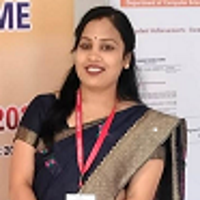
Mrs. Keshika Jangde
Assistant Professor
Qualification – Ph.D (Pursuing)
Specialization – N/A
Year of Experience – 8.5 Yrs
Date of Joining – 24-08-2023
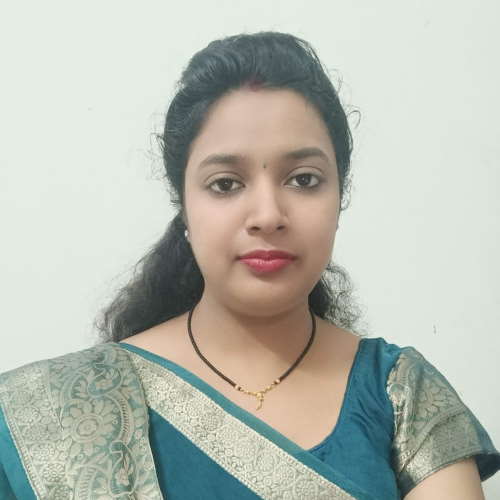
Ms. Jyoti Gautam
Assistant Professor
Qualification – PG
Specialization – N/A
Year of Experience – 07 Yrs
Date of Joining – 05-05-2025
Mr. Tegendra Kumar
Assistant Professor
Qualification – PG
Specialization – N/A
Year of Experience – 13 Yrs
Date of Joining – 04-11-2019
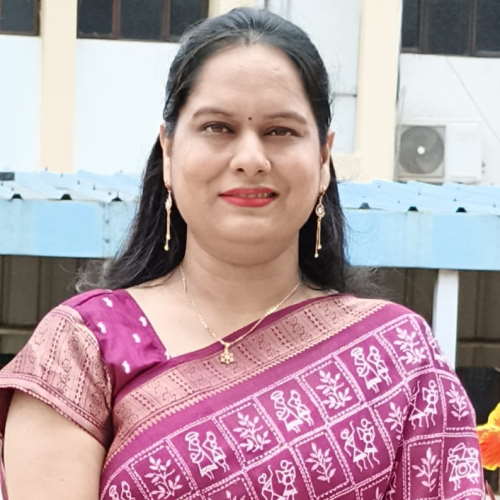
Ms. Toshaniwali Bhargav
Assistant Professor
Qualification – PG
Specialization – IoT, Deep Learning
Year of Experience – 08 Yrs
Date of Joining – 03-06-2024
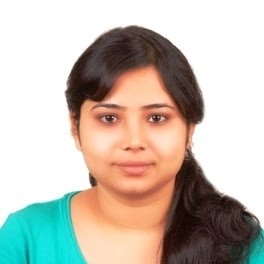
Ms. Upasana Khadatkar
Assistant Professor
Qualification – PG
Specialization – Image Processing
Year of Experience – 04 Yrs
Date of Joining – 04-11-2019
About CSE Department
Established in 2008, the Department of Computer Science and Engineering (CSE) has steadily evolved into a center for academic excellence and holistic student development. Affiliated to Chhattisgarh Swami Vivekanand Technical University (CSVTU), Bhilai, the department offers a curriculum grounded in core computing principles and aligned with current technological trends.
Beyond academics, the department is deeply committed to shaping responsible professionals who are not only technically sound but also ethically aware and socially conscious. The academic journey here is reinforced with industry-endorsed employment readiness programs, hands-on training, and student development initiatives that prepare learners to meet real-world challenges with confidence and creativity.
Students are encouraged to think critically, work collaboratively, and solve problems using modern tools and methodologies. Special emphasis is placed on developing software solutions, designing intelligent systems, and exploring innovations in fields like artificial intelligence, cybersecurity, and cloud computing. These experiences nurture leadership, entrepreneurial thinking, and lifelong learning habits essential for career success in an ever-evolving digital landscape.
With a focus on innovation, sustainability, and community impact, the department fosters a culture where students grow into professionals capable of contributing meaningfully to both industry and society.
List of Programs Offered
The Department of Computer Science and Engineering offers the following academic programs:
- Bachelor of Technology (B. Tech.) in Computer Science and Engineering
- Master of Technology (M. Tech.) in Computer Science and Engineering (Artificial Intelligence and Machine Learning)
- Doctor of Philosophy (Ph.D.) in Computer Science and Engineering
A four-year undergraduate program designed to build a strong foundation in computer science fundamentals, programming, system design, and emerging technologies.
A two-year postgraduate program focused on advanced topics in AI, machine learning, data analytics, and intelligent systems, aimed at research and industry innovation.
A research-oriented program that allows scholars to pursue original research in specialized areas of computing such as algorithms, data science, cybersecurity, AI, and more.
Department Academic Calendar
Department Vision
To create professionally skilled and ethically sound computer engineers to meet the evolving needs of industry and society.
Department Mission
| M1 | To impart quality, innovation-driven education through an effective, outcome-based teaching-learning process. |
| M2 | To nurture ethical values, creativity, and novelty among students to become entrepreneurs and establish start-ups. |
| M3 | Foster a strong relationship with intellectuals and industry leaders to help learners stay current with the latest technologies. |
| M4 | To encourage students to focus on sustainable solutions to improve the quality of life and the welfare of the society. |
List of PO's
| PO1 Engineering Knowledge |
Apply the knowledge of mathematics, science, engineering fundamentals, and an engineering specialization to the solution of complex engineering problems. |
| PO2 Problem Analysis |
Identify, formulate, research literature, and analyze complex engineering problems reaching substantiated conclusions using first principles of mathematics, natural sciences, and engineering sciences. |
| PO3 Design & Development of Solutions |
Design solutions for complex engineering problems and design system components or processes that meet the specified needs with appropriate consideration for the public health and safety, and the cultural, societal, and environmental considerations. |
| PO4 Investigations of Complex Problems |
Use research-based knowledge and research methods including design of experiments, analysis,and interpretation of data, and synthesis of the information to provide valid conclusions. |
| PO5 Modern Tool Usage |
Create, select, and apply appropriate techniques, resources, and modern engineering and IT tools including prediction and modeling to complex engineering activities with an understanding of the limitations. |
| PO6 Engineer and Society |
Apply reasoning informed by the contextual knowledge to assess societal, health, safety, legal and cultural issues and the consequent responsibilities relevant to the professional engineering practice. |
| PO7 Environment and Sustainability |
Understand the impact of the professional engineering solutions in societal and environmental contexts, and demonstrate the knowledge of, and need for sustainable development. |
| PO8 Ethics |
Apply ethical principles and commit to professional ethics and responsibilities and norms of the engineering practice. |
| PO9 Individual and Team Work |
Function effectively as an individual, and as a member or leader in diverse teams, and in multidisciplinary settings. |
| PO10 Communication |
Communicate effectively on complex engineering activities with the engineering community and with society at large, such as, being able to comprehend and write effective reports and design documentation, make effective presentations, and give and receive clear instructions. |
| PO11 Project Management and Finance |
Demonstrate knowledge and understanding of the engineering and management principles and apply these to one’s own work, as a member and leader in a team, to manage projects and in multidisciplinary environments. |
| PO12 Life-long Learning |
Recognize the need for, and have the preparation and ability to engage in independent and life-long learning in the broadest context of technological change. |
List of PSO's
| PSO1 | Programming and Software Development – Able to design, develop, and optimize software solutions using modern programming languages and tools. |
| PSO2 | System Design and Analysis : Develop efficient computing solutions by analyzing real-world problems, applying computing techniques, and using computer-based systems. |
| PSO3 | Emerging Technologies : Understand and implement advancements in emerging areas like AI, machine learning, cybersecurity, and cloud computing. |
List of PEO's
| PEO1 | Graduates will be employable and achieve success in the areas of Computer Science and allied engineering. |
| PEO2 | Graduates shall be good leaders and managers and effectively communicate at both technical and interpersonal levels. |
| PEO3 | Graduates will use their understanding of professional, ethical and social responsibilities. |
Scheme & Syllabus
B.Tech
Scheme
Syllabus
M.Tech
Scheme
Syllabus
Laboratories
The Department of Computer Science and Engineering is equipped with modern laboratories to support academic, project-based, and research activities. Each lab is furnished with 60 high-performance computers, projectors, whiteboards, and all necessary peripheral devices to enhance the learning experience. Additionally, a dedicated research lab with 19 advanced computing systems provides an ideal environment for innovation and exploration in emerging areas of computer science.
List of Laboratories:
| Sr No. | Name of the Laboratory | Professor-In-Charge | Lab Assistant |
|---|---|---|---|
| 1 | Computer Lab 1 | Ms. Poonam Gupta | Mr. Sonesh Dewangan |
| 2 | Computer Lab 2 | Mr. Devbrat Sahu | Mr. V. Gauri Shankar |
| 3 | Computer Lab 3 | Mr. Manoj Kumar Singh | Mr. Trilok Dewangan |
| 4 | Computer lab 4 | Ms. Keshika Jangde | Mr. Toman Lal Sahu |
| 5 | Computer lab 5 | Mr. Saurabh Mishra | Mr. Yeeshu Kumar Sahu |
| 6 | Research Lab | Dr. Apurv Verma | Mr. Ishwar Rao |




Overall Ambience
- The department houses a sufficient number of laboratories, scheduled as per the academic timetable to meet curriculum requirements for all semesters.
- Practical-based courses are allocated dedicated lab sessions every week.
- Laboratory furniture, including chairs and benches, is well-maintained. Individual seating is provided for each student.
- Labs are equipped with adequate hardware and open-source software to support both program-specific and interdisciplinary curricula.
- Laboratory manuals are provided to students for effective practical learning
- All labs are designed with ample windows to ensure proper ventilation and natural lighting.
- An effective lighting system ensures well-lit working conditions, enhanced by natural light.
- In case of a power failure, we have UPS, which provides power to our computer systems.
- Each laboratory is equipped with a whiteboard, computers, internet access, and other essential amenities.
- A dedicated Project Laboratory is available to faculty and students for research and development activities.
- Each laboratory is equipped with properly rated fire extinguishers, strategically positioned to comply with safety regulations, addressing potential fire hazards and ensuring a prompt emergency response.
- A dedicated, climate-controlled server room supports the department’s IT infrastructure, ensuring uninterrupted access to academic databases, computer systems, and institutional servers.
- The department actively integrates Information and Communication Technology (ICT) tools across all laboratories. These tools include intelligent systems, projectors, and interactive platforms, fostering dynamic and effective teaching and learning processes.
- Each laboratory is connected via a secure, high-speed Local Area Network (LAN), ensuring seamless internet access that is essential for curriculum delivery, software updates, and research activities. The network infrastructure accommodates both wired and wireless connectivity, catering to diverse academic needs.
- A robust firewall system is implemented at the network level to protect the digital infrastructure from unauthorized access, ensuring secure and regulated internet usage across all laboratory spaces.
- All laboratories are equipped with air conditioning systems to maintain optimal ambient conditions, enhancing comfort and productivity during lab sessions and computational tasks.
- Each laboratory features clearly defined “Dos and Don’ts” to guide students and faculty in the safe and responsible use of laboratory equipment, software resources, and ICT infrastructure, thereby promoting discipline and operational efficiency.
Safety Measures
- General Rules of Conduct in Laboratories are displayed.
- Specific Safety Rules for students are displayed
- Fire Extinguisher
- Avoiding the use of damaged equipment and providing the needed equipment and components.
- Avoiding the use of cell phones.
- Do’s and Don’ts are displayed for students.
- To protect computers from dust, shoes and bags are not permitted in the labs; shoe racks are provided for storage.
- CCTV camera installed.
- Antivirus is installed in systems to ensure safety from viruses.
Departmental Association
CSA, an acronym for Computer Science Association is the disciplinary association for the Department of Computer Science & Engineering at SSIPMT, Raipur. It was formed in the year 2011. CSA stands as a powerful learning platform with substantial inflow of senior guidance and mentorship. The association has an open nature, thus allowing the convergence of Computer Science enthusiasts from all streams of study. CSA is well-known for organizing series of lectures and talks on various emerging technologies, quizzing, coding and sports events around the year. We are also conduct seminars and workshops on up-coming technologies like IOT, Microsoft Windows Phone-8, Cyber Security, Android, PHP, etc.
The basic aim and objective of this association is to promote scientific and educational activities towards the advancement of theory and practice of Computer Science apart from regular curriculum. CSA always provides opportunity to students to improve their overall personality such as:
- Professional Attitude
- Managerial Skills
- Team work
- Communication Skills
Teaching Learning Process
Video Lecture by Faculty
LCS
DFS Algorithm
GATE Question LCS
SSTF Disc Scheduling
Operators in C
Disk Drive
LCS Lecture
NPTEL Video Lectures
Publication
Student Research Paper
| S. No. | Academic Year | Publication Details |
|---|---|---|
| 1 | 2014-2015, 2015-2016, 2016-2017 | Click Here |
| 2 | 2017-2018 | Click Here |
| 3 | 2018-2019 | Click Here |
Faculty Research Paper
| S. No. | Faculty Name | Publication Details |
|---|---|---|
| 1 | Mr. Abhishek Kumar Saw | Click Here |
| 2 | Mr. Anand Tamrakar | Click Here |
| 3 | Mr. Ashish Pandey | Click Here |
| 4 | Mr. Deepak Rao Khadatkar | Click Here |
| 5 | Dr. JP Patra | Click Here |
| 6 | Ms. Kaveri Kar | Click Here |
| 7 | Mr. Prakash Sahu | Click Here |
| 8 | Mrs. Preeti Tuli | Click Here |
| 9 | Ms. Shraddha Taunk | Click Here |
| 10 | Mrs. Sumitra Samal | Click Here |
| 11 | Ms. Taniya Jain | Click Here |
| 12 | Mr. Yogesh Kumar Rathore | Click Here |
CSI Student Chapter
The Computer Society of India (CSI) Student Chapter at Shri Shankaracharya Institute of Professional Management and Technology (SSIPMT), Raipur, was established in 2019 under the Department of Computer Science and Engineering. Since its inception, the chapter has been dedicated to nurturing technical excellence, promoting professional development, and encouraging innovation among students.
The CSI Student Chapter provides a platform for students to engage in various co-curricular and extracurricular activities including technical workshops, coding competitions, seminars, webinars, industrial visits, expert talks, and project exhibitions. It aims to bridge the gap between academic knowledge and industry expectations by fostering a culture of continuous learning and collaboration.
The chapter operates with the mission to empower students with emerging technological skills, foster leadership qualities, and build a strong professional network. By being a part of CSI, students gain access to national-level conferences, journals, and forums where they can showcase their talents and interact with professionals and researchers across the country.
With active participation and dedicated mentorship from faculty, the CSI Student Chapter at SSIPMT continues to contribute significantly to the holistic development of students, helping them stay aligned with the ever-evolving tech landscape.
Following is the latest Certificate provided by CSI, Chennai

Research & Development Activities
The Research & Development (R & D) Cell has been established under the banner of the department of computer science and engineering in 2020. The research and development cell encourages research culture among the faculty and students. In this cell, 3 supervisors are available to guide the students.
- Dr. J P Patra
- Dr. Suman Kumar Swarnkar
- Dr. Chaitali Biswas Dutta
- Dr. Kalpana Joshi
Department always motivates faculty members to participate in research activities to enhance their skill set. Hence for the same, 6 faculty members of the department are pursuing their Ph.D. from NIT, CSVTU, and other well-recognized universities. Department also got a patent on “ROTATABLE LAPTOP BASE STAND WITH SCREEN” in the year 2021.
Under this cell students of the institute developed many applications like Covid Tracker, Survival on mars, and Foodie under the guidance of supervisors.
The prime role of the cell is to create contacts with the real world and promote research through a range of publications. It enables a congenial environment for technological development and monitors the research activities of the Institute. The R&D Cell takes upon the responsibility of creating a work place to attract the best talent and strives continuously in pooling of skills and internal resources, creating strategy, overcoming limitations, and makes the Institute proud to be amongst the best institutions around the Globe. It encourages the students and faculty to undertake the research in newly emerging frontier areas of Engineering, Technology, Science and Humanities including multidisciplinary fields. This enhances the general research capability of budding technocrats by way of participating in conferences, seminars, workshops, project competition, etc.
The Research & Development (R & D) Cell facilitates and encourages research culture among the faculty and students. Its prime role is to create contacts with the real world and promote research through a range of publications. It enables a congenial environment for technological development and monitors the research activities of the Institute. The R&D Cell takes upon the responsibility of creating a work place to attract the best talent and strives continuously in pooling of skills and internal resources, creating strategy, overcoming limitations, and makes the Institute proud to be amongst the best institutions around the Globe. It encourages the students and faculty to undertake the research in newly emerging frontier areas of Engineering, Technology, Science and Humanities including multidisciplinary fields. This enhances the general research capability of budding technocrats by way of participating in conferences, seminars, workshops, project competition, etc.
The Research and Development Cell is functioning with the following objectives:
- To create awareness and opportunities in Research and Development among the students & faculty and to create Research and Development atmosphere in every department.
- To create interest and atmosphere among the staff members to take up Research projects and improve their knowledge, skills and qualifications by registering Ph. D’s.
- To motivate the faculty members of the group for R&D activities in the area of their specialization;
- To encourage staff members and students to publish technical papers for publishing in National and reputed International Conferences/Journals.
- To encourage faculty members of all the disciplines in Engineering/Science /Humanities in R&D activities for their professional growth.












































































